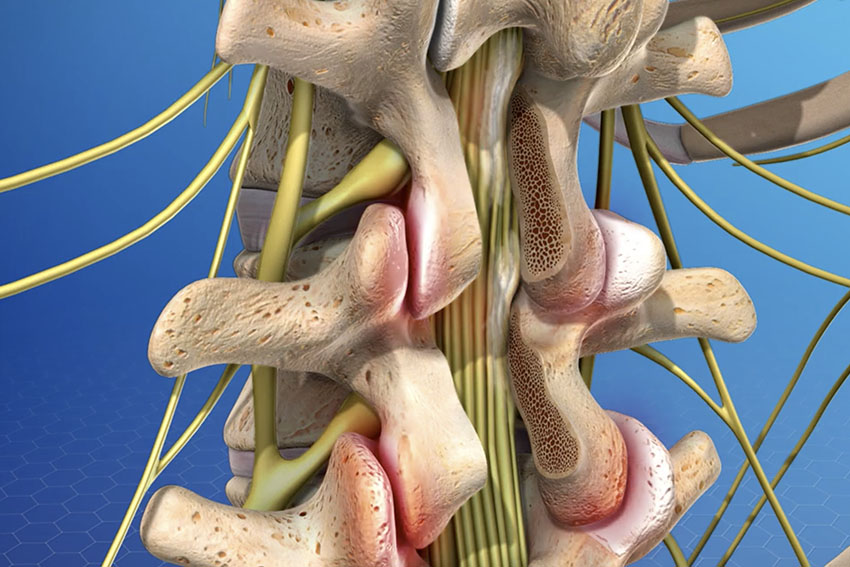Back pain is one of the most common problems in our population. It affects all age groups starting from school children to old people. The reason behind this problem may be improper body mechanism, trauma, injuries to the spine, aging, etc. It can also be the symptom of pressure on the nerves in the spine or to any part of the back. Most of the issues of back pain can be cured by proper medications, physical therapies, and non-surgical treatments. When these kinds of treatments do not help you from back pain, surgery may be indicated. Looking for a highly skilled spine specialist in Pimpri Chinchwad, Pune? Your search ends with Dr. Shrirang Kulkarni, an esteemed orthopedic surgeon specializing in spine conditions. Some common conditions affecting the back are
- Slipping of the disc called Disc Prolapse.
- A curvature of the spine called Scoliosis.
- A humpback deformity called Kyphosis.
- The forward slippage of a segment of the spine called Spondylolisthesis.
- Degenerative disc diseases.
- Because of a herniated disk, the irritation and inflammation of a nerve called Radioculopathy.
- Narrowing of the spinal canal, called Spinal Stenosis.
- Fractures of the vertebra caused due to injury.
- Infections like Tuberculosis damaging the bones.
A variety of surgeries are performed depending on the injury to the spine. Some of them are
- Discectomy
- Foramenotomy
- Laminectomy
- Spinal Fusion
- Disc Replacement
- Vertebroplasty/ Kyphoplasty


Spine surgery refers to surgical procedures performed on the spine to treat conditions such as herniated discs, spinal stenosis, deformities, fractures, and more. It aims to alleviate pain, restore function, and improve quality of life.
Spine surgery is considered when conservative treatments like physical therapy, medications, and injections fail to provide relief. It’s usually recommended for severe pain, neurological deficits, or when non-surgical options are ineffective.
As a spine surgeon, I specialize in a range of procedures, including minimally invasive spine surgery, spinal fusion, disc replacement, deformity correction, and spinal tumor removal, among others.
Minimally invasive spine surgery involves using small incisions and specialized tools to access the spine. This approach reduces tissue damage, leads to faster recovery, and lowers the risk of complications compared to traditional open surgery.
Preparation varies based on the procedure. Generally, you’ll need to stop certain medications, arrange for post-surgery care, and follow pre-operative instructions provided by your surgeon.
Recovery varies depending on the surgery. It may involve physical therapy, restricted activities, and follow-up appointments. Minimally invasive procedures often result in quicker recovery times.
Like any surgical procedure, spine surgery carries risks such as infection, bleeding, nerve damage, and anesthesia complications. However, modern techniques and experienced surgeons aim to minimize these risks.
Look for a surgeon with extensive training, board certification, and experience in spine surgery. Reading patient reviews and seeking recommendations from primary care physicians can also help you make an informed choice.
No, spine surgery isn’t a guaranteed cure for all types of back pain. It’s usually reserved for cases where conservative treatments haven’t been effective. A thorough evaluation by a spine specialist is crucial to determine the appropriate treatment.
Age alone isn’t the primary factor in determining if someone is a candidate for spine surgery. A person’s overall health, the severity of the condition, and the potential benefits and risks of surgery are all considered.
Maintaining a healthy weight, practicing good posture, engaging in regular exercise that strengthens the core and back muscles, and avoiding smoking can help reduce the risk of spine problems.
Advancements in technology and techniques have led to safer and more effective spine surgeries. Minimally invasive approaches, improved instrumentation, and advanced imaging have revolutionized the field.
You can reach out to schedule a consultation at [Contact Information], where we’ll discuss your condition, treatment options, and address any concerns you might have.
Remember, every patient’s situation is unique, so it’s important to consult with a qualified spine surgeon to determine the most suitable approach for your specific needs.
